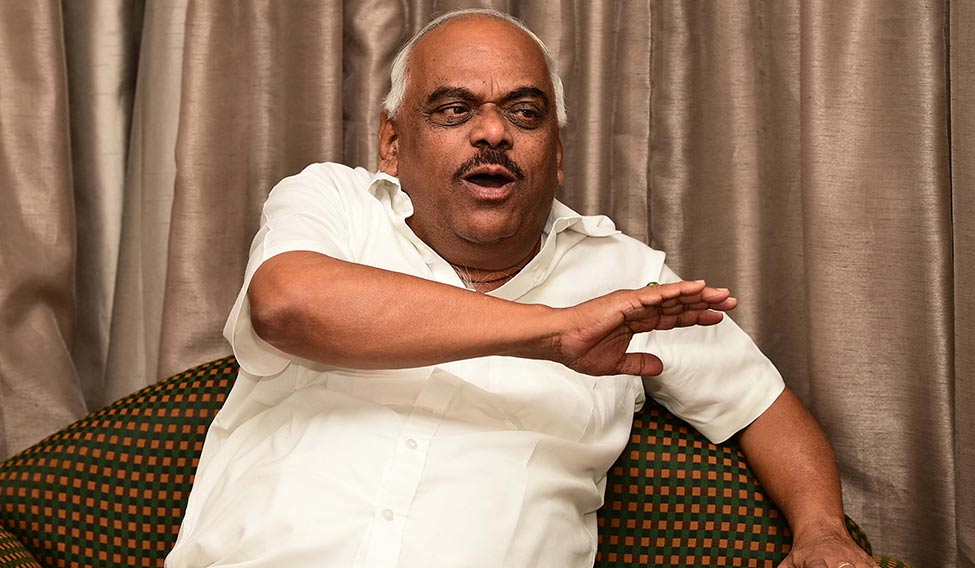K.R. Ramesh Kumar has become a polarising figure. By piloting the contentious Karnataka Private Medical Establishments (Amendment) Bill 2017—which was passed in the state assembly in November and which defines how private hospitals should function—the state health minister has become a hero to the common man, but a villain in the eyes of private doctors. Ramesh, however, says that the bill is only the starting point for reforms in the health care sector. Excerpts from an exclusive interview:
The doctors feel the bill is unrealistic while activists say its “dilution”, under pressure from doctors, would defeat its purpose.
Health activists' apprehensions over “dilution” of the bill are the same as doctors' unfounded fears about the bill. The bill only intends to streamline the health care sector, protect the patients and rationalise the cost of treatment across all hospitals. The price regulation will come through only after elaborate discussions by an expert panel consisting of representatives from both private and government sectors. The government will notify the prices and call for objections, too. The infrastructure of hospitals, along with the expertise and experience of the doctors, will be factored in while fixing the price. The government is not irrationally grouping all hospitals or specialists together.
What ails the current health care system?
In 70 per cent cases, the state government is dependent on the private sector for tertiary care. Why should the government send patients to private hospitals when it is making huge investments in state hospitals?
Are you hinting at a total overhaul of services?
We intend to change many things. We are simultaneously strengthening our public health institutions. People should avail themselves of the primary and secondary facilities available at government hospitals. Then, we need to refer patients to private hospitals only for procedures that are not available with us. Here, we can negotiate and fix the treatment cost. Right now, the system is disorganised and I want to channel government expenditure. The government has enough money, provided it [the system] is streamlined.
Is there an effort to make the public sector more competitive?
I believe the health budget is adequate for that. We will upgrade primary health centres, too. Every taluk hospital will have a dentist chair, an ultrasound machine, an intensive care unit and a dialysis machine, among other facilities. Our network of ambulances (each of which covers a radius of 15km) will be connected through GPS. All patient records will be digitised and updated at every stage of treatment. Recently, AIIMS cut down the waiting time for an appointment with a specialist from nine hours to less than 15 minutes. We want to replicate that.
Do you intend to regulate only the primary and secondary services?
As the common man, too, is affected by diseases that only top hospitals can treat, I cannot exempt the tertiary care centres from the bill.
Is it fair to regulate only the private sector?
I agree that the government facilities are underutilised because of wrong policies and flawed public perception. Ask any medical aspirant, and he would prefer a government college as it is affordable. But, ask a medical graduate, and he would prefer to work in a private hospital. There is no issue with the quality or expertise available in the government sector. There is corruption and I, too, notice that inventories and equipment are going waste.
Where does reform begin?
I was shocked to see that there was a huge stock of expired medicines worth Rs 70 crore to Rs 80 crore in our depot. We are now discouraging our doctors from prescribing branded medicines when there is an equivalent generic drug easily available. The price difference is almost 70 per cent.
What would you tell private doctors who see the bill as detrimental to entrepreneurs?
We don't look at the private sector as a rival. We are proud of it. The whole idea is that the human element should not vanish. A doctor, and not an MBA, should man a nursing home or a hospital. There cannot be [billing] targets allocated to doctors. The bill is against offenders and not doctors.














